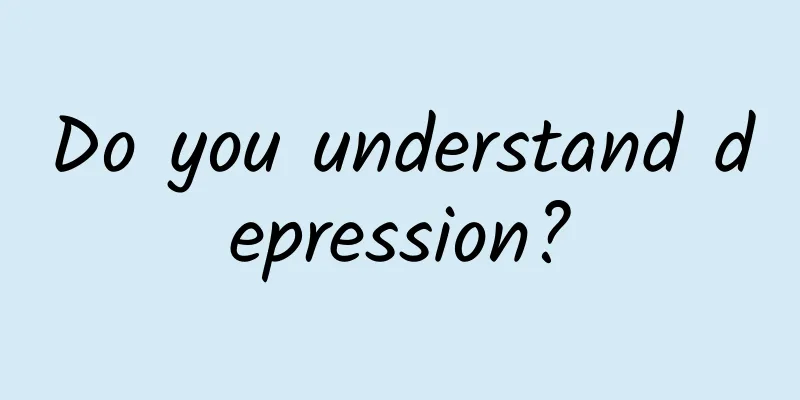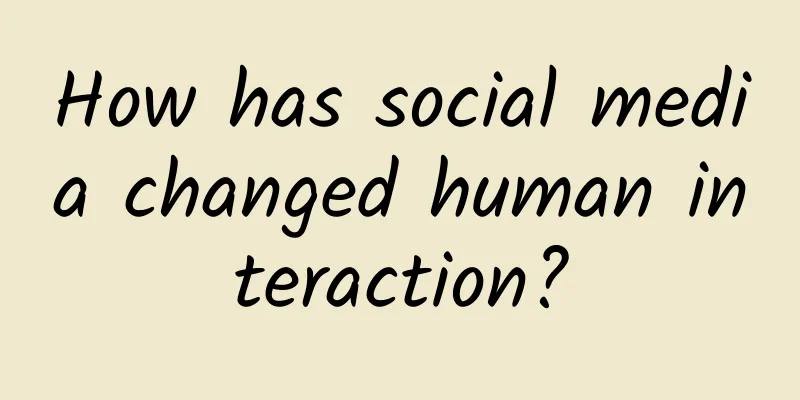Do you understand depression?

|
In recent years, people often refer to depression as a "mental cold", which shows that depression is a very common disease. It is a type of mental disorder with low mood, slow thinking, and decreased willpower as the main symptoms. It may be accompanied by psychotic symptoms such as anxiety, suicidal thoughts and behaviors, hallucinations, delusions, and symptom groups such as sleep disorders, appetite disorders, and physical discomfort. The vast majority of patients have intact self-awareness and actively seek treatment; however, those with strong suicidal thoughts and psychotic symptoms often lack self-awareness. Each episode of depression lasts at least 2 weeks, and some even last for several years. Although most patients can be relieved, there is a tendency for recurring episodes. Some patients may have residual symptoms or develop a chronic course. 1. What are the symptoms of depression in the elderly? The prevalence of depression in the elderly is as high as 15%. The clinical manifestations are often not typical, making it difficult to make an accurate judgment. Generally, the main clinical manifestations are depressed mood, hypochondriasis, inattention, memory loss, and physical discomfort. It can also manifest as slow thinking, reduced interest, low self-esteem, intellectual decline, reduced speech and movement, etc. Chronic diseases such as diabetes and hypertension increase the risk of depression in the elderly. About one-third of patients after cerebral infarction suffer from depression. Therefore, the family members of such patients need to understand depression in the elderly and detect and treat it early. 2. Are depressed mood and depression the same thing? Depression is different from sadness and discouragement in daily life. Its basic manifestation is significant and persistent low mood, accompanied by corresponding abnormal thinking and behavior. In daily life, everyone will encounter setbacks and failures, and experience sadness, pain, and even despair. The depression and sadness caused by these clear events are a normal emotional response and emotional expression, which generally does not last too long. However, some people's depressive symptoms have no clear triggers. If adverse life events occur in life, the depressive symptoms last for more than 2 weeks or even longer, and they become increasingly severe, causing serious impacts on work and life, this situation is likely to be depression, and you should go to a psychiatrist for treatment in time. 3. How does one get depression? The cause of depression is still unclear, but most studies believe that depression "prefers" the following people: (1) People with a positive family history of depression. (2) Female population: The incidence rate of females is about twice that of males. (3) People who are under great psychological pressure for a long time and are in fierce competition. (4) People who are in a state of stress, such as victims of certain social events, natural disasters, and man-made disasters. (5) People with emotionality, low self-esteem, introversion, anxiety, and obsessive-compulsive traits. (6) People with bad habits, such as excessive use of or dependence on alcohol or other addictive substances. (7) People in menopause and old age. (8) People who had tragic childhood experiences and those who are divorced or living alone. 4. What are the treatments for depression? Depression is preventable and treatable. The main treatment methods are medication, psychotherapy and physical therapy. Medication is the main treatment method for depression. It controls acute symptoms. After the mood is stabilized, cognitive behavioral therapy, group therapy, psychoanalysis and other psychotherapy and transcranial magnetic stimulation can be used. Electroconvulsive therapy (MECT) can be used for patients with strong suicidal ideation and depressive stupor. In addition, good hobbies, a healthy lifestyle and a tolerant and open-minded attitude are also helpful for treatment. 5. Are antidepressants addictive? Antidepressants are not addictive, nor do they mean that you cannot stop taking them for life. The treatment of antidepressants is usually long, and some patients may experience withdrawal reactions such as anxiety, sweating, dizziness, and gastrointestinal discomfort if they suddenly stop or reduce the dosage on their own. They should gradually reduce or stop taking the medicine under the guidance of a doctor. In addition, although antidepressants themselves are not addictive, it does not rule out that some patients have a psychological dependence on the drugs, which can be improved through a healthy lifestyle, moderate exercise, distraction, disease education, cognitive behavioral therapy, etc. 6. Can exercise treat depression? Exercise can improve physiological symptoms such as decreased appetite and sleep disorders in patients with depression. For elderly patients with depression, it is recommended to exercise regularly at least 30-60 minutes at least 3 times a week under the supervision of professionals, such as brisk walking, jogging, skipping rope, swimming, square dancing, yoga, etc. Older patients or those with poor physical fitness can take a 1-2 hour outdoor walk every day according to their own conditions. Compared with the therapeutic effect on depression, the preventive effect of exercise on depression in the elderly is more obvious. 7. What are some tips for exercise prescriptions for depression? (1) Reduce sedentary time and choose sports you enjoy. The higher the intensity, the better, as long as your body can tolerate it. As long as you move, you are preventing depression. (2) When symptoms of depression occur, you can try exercise prescriptions. Exercise programs performed under the guidance of professionals can achieve better results. If there is no significant improvement in 1 to 2 months, it is recommended to see a psychiatrist as soon as possible. (3) When receiving drug treatment or psychotherapy, exercise therapy can also be used in conjunction with it. This will not only enhance the efficacy but also improve treatment compliance. (4) Social support is also a booster for exercise therapy. Exercising with friends or family can increase the chances of successful treatment. 8. How to keep yourself in a good mood in daily life? (1) Maintain a lively, cheerful, happy and confident attitude in daily life. When facing various emergencies, establish a correct mindset and a positive and optimistic attitude. (2) Face setbacks correctly. When you encounter setbacks, adjust your mindset in a timely manner and don’t be overwhelmed by the trauma of setbacks. (3) Develop good living habits. Live a regular life, exercise, eat a healthy diet, and get enough sleep. (4) Expand interpersonal communication. In your spare time, talk to your family and friends about your concerns, discuss solutions, and think rationally. (5) Cultivate interests and hobbies. The wider a person's interests are, the stronger his or her adaptability will be, the less psychological pressure will be, and this will have a very good effect on preventing psychosomatic diseases. (6) Manage stress and emotions. Learn at least one self-regulation method, such as traveling, exercising, listening to music, reading, etc. regularly. These good feelings will increase happiness and confidence. 9. What should family members pay attention to when facing patients with depression? (1) Psychological support: Since patients with depression often lack self-confidence, are pessimistic or even desperate, their family members should talk to them more and encourage them more. (2) Close observation: Family members should strengthen observation to prevent patients with depression from committing suicide or self-harm. (3) Supervise medication: Family members should understand the basic knowledge of antidepressant drugs, supervise patients to take medication, and cooperate with doctors to support patients' treatment. (4) Life care: Pay attention to regulating diet and ensuring adequate sleep. For patients with mild illness, you should accompany the patient to exercise and relieve stress. (5) Encourage social interaction: Encourage patients to return to their social circles of relatives and friends, be infected by the happiness of others, and gain the strength of social support. |
Recommend
What to do if your cervix hurts
There are many causes of cervical pain. It may be...
What is withdrawal bleeding?
One of the manifestations of women's physical...
How to treat hydrosalpinx of fallopian tube?
Some female patients have infertility, which seri...
Are gestational age and gestational age the same?
I believe most pregnant women are familiar with g...
How to induce abortion of ectopic pregnancy?
Induced abortion is a method often adopted by wom...
How long does it take for the menstrual period to end?
Women need to stay in confinement after giving bi...
Precautions after pregnancy
When female friends enter pregnancy, they should ...
What causes burning sensation in breasts?
The burning sensation in the breasts is mainly ca...
Frequent urination, urgent urination, what department should I go to?
Urination is part of our daily life. Normally, pe...
Can eating motherwort induce menstruation?
Menstruation is a normal physiological reaction t...
What are the benefits of eating bird's nest during the dog days? How to eat bird's nest during the dog days
The summer climate is humid and hot. Once you go ...
A comprehensive list of alkaline foods and fruits, come and have a look
The Chinese people's eating habits are mostly...
What to do if mastitis causes pus?
Mastitis with pus does indicate that the conditio...
Will there be breast pain before pregnancy?
Pregnancy is both a happy and painful thing for w...









